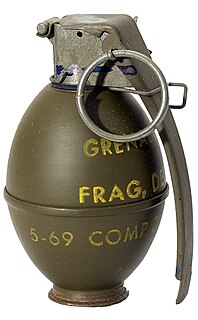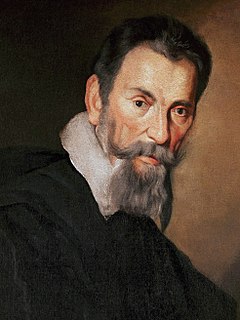Related Research Articles

Don Giovanni is an opera in two acts with music by Wolfgang Amadeus Mozart and Italian libretto by Lorenzo Da Ponte. It is based on the legends of Don Juan, a fictional libertine and seducer, by Spanish writer Tirso de Molina. It was premiered by the Prague Italian opera at the National Theater, now called the Estates Theatre, on 29 October 1787. Da Ponte's libretto was billed as a dramma giocoso, a common designation of its time that denotes a mixing of serious and comic action. Mozart entered the work into his catalogue as an opera buffa. Although sometimes classified as comic, it blends comedy, melodrama and supernatural elements.

Fidelio, originally titled Leonore, oder Der Triumph der ehelichen Liebe, Op. 72, is Ludwig van Beethoven's only opera. The German libretto was originally prepared by Joseph Sonnleithner from the French of Jean-Nicolas Bouilly, with the work premiering at Vienna's Theater an der Wien on 20 November 1805. The following year, Stephan von Breuning helped shorten the work from three acts to two. After further work on the libretto by Georg Friedrich Treitschke, a final version was performed at the Kärntnertortheater on 23 May 1814. By convention, both of the first two versions are referred to as Leonore.

Fragging is the deliberate killing or attempted killing by a soldier of a fellow soldier, usually a superior officer or non-commissioned officer (NCO). The word was coined by U.S. military personnel during the Vietnam War, when such killings were most often attempted with a fragmentation grenade, sometimes making it appear as though the killing was accidental or during combat with the enemy. The term fragging is now often used to encompass any means used to deliberately and directly cause the death of military colleagues.
In the 1860s, the Copperheads, also known as Peace Democrats, were a faction of Democrats in the Union who opposed the American Civil War and wanted an immediate peace settlement with the Confederates.

Salvatore "Good Looking Sal" Vitale is an American former underboss of the Bonanno crime family before he became a government informant. After his arrest in 2003, Vitale agreed to cooperate with the government and testify against his brother-in-law, boss Joseph Massino, and in July 2004, Massino was convicted in a RICO case. Vitale had admitted to 11 murders, however, in October 2010, was sentenced to time served due to his cooperation, and entered the witness protection program.

Timeline is a 2003 American science fiction adventure film directed by Richard Donner and starring Paul Walker, Frances O'Connor, Gerard Butler, Billy Connolly, David Thewlis, and Anna Friel. Based on Michael Crichton's 1999 novel of the same name, the screenplay concerns a team of present-day archaeology and history students who are sent back in time to medieval France, to rescue their professor from the middle of a battle.

L'incoronazione di Poppea is an Italian opera by Claudio Monteverdi. It was Monteverdi's last opera, with a libretto by Giovanni Francesco Busenello, and was first performed at the Teatro Santi Giovanni e Paolo in Venice during the 1643 carnival season. One of the first operas to use historical events and people, it describes how Poppaea, mistress of the Roman emperor Nero, is able to achieve her ambition and be crowned empress. The opera was revived in Naples in 1651, but was then neglected until the rediscovery of the score in 1888, after which it became the subject of scholarly attention in the late 19th and early 20th centuries. Since the 1960s, the opera has been performed and recorded many times.

Copperhead is a fictional supervillain in DC Comics.

Hugo David Weisgall was an American composer and conductor, known chiefly for his opera and vocal music compositions. He was born in Ivančice, Moravia and moved to the United States at the age of eight.

Hernani is a drama in rhyming alexandrines by the French romantic author Victor Hugo.

Commandos is a war film starring Lee Van Cleef and Jack Kelly and directed by Armando Crispino.
Esther is an American opera in 3 acts composed by Hugo Weisgall, with a libretto by Charles Kondek. Esther was premiered by the New York City Opera in October 1993. The opera is about Esther's struggle as she becomes the queen of Persia, and her heroic triumph over the evil Prime Minister Haman and his plot of exterminating the Jews.

The Dirty Dozen: Next Mission is a 1985 made-for-TV film and sequel to the original 1967 film Dirty Dozen, directed by Andrew V. McLaglen and reuniting Lee Marvin, Ernest Borgnine and Richard Jaeckel 18 years after the original hit war film. Marvin returns to lead an all-new dirty dozen on a mission to assassinate an SS General played by Wolf Kahler.

The Maywand District murders were the murders of at least three Afghan civilians perpetrated by a group of U.S. Army soldiers from June 2009 to June 2010, during the War in Afghanistan. The soldiers, who referred to themselves as the "Kill Team", were members of the 3rd Platoon, Bravo Company, 2nd Battalion, 1st Infantry Regiment, and 5th Brigade, 2nd Infantry Division. They were based at FOB Ramrod in Maiwand, from Kandahar Province of Afghanistan.
Julian Patrick was an American operatic baritone and voice teacher. Born in Mississippi, Patrick grew up in Birmingham, Alabama where he was a member of the Apollo Boys Choir. After graduating from the Cincinnati Conservatory of Music, he began his professional career as a musical theatre performer in the 1950s; appearing in the original Broadway productions of The Golden Apple (1954), Bells Are Ringing (1956), Juno (1959), Once Upon a Mattress (1959), and Fiorello! (1959). He also studied singing privately in New York City with Cornelius L. Reid.

La Esmeralda is a grand opera in four acts composed by Louise Bertin. The libretto was written by Victor Hugo, who had adapted it from his 1831 novel Notre-Dame de Paris. The opera premiered at the Théâtre de l'Académie Royale de Musique in Paris on 14 November 1836 with Cornélie Falcon in the title role. Despite the lavish production, the premiere was a failure, and La Esmeralda proved to be the last opera composed by Bertin, although she lived for another 40 years.
William Brown was an American operatic tenor.

The Italian composer Claudio Monteverdi (1567–1643), in addition to a large output of church music and madrigals, wrote prolifically for the stage. His theatrical works were written between 1604 and 1643 and included operas, of which three—L'Orfeo (1607), Il ritorno d'Ulisse in patria (1640) and L'incoronazione di Poppea (1643)—have survived with their music and librettos intact. In the case of the other seven operas, the music has disappeared almost entirely, although some of the librettos exist. The loss of these works, written during a critical period of early opera history, has been much regretted by commentators and musicologists.

Esmeralda is an opera in four acts composed by Arthur Goring Thomas to an English-language libretto by Theo Marzials and Alberto Randegger based on Victor Hugo's 1831 novel The Hunchback of Notre-Dame. It premiered in London on 26 March 1883 at the Theatre Royal, Drury Lane with Georgina Burns in the title role and Barton McGuckin as her lover, Phoebus.

Die Göttin der Vernunft was the last completed operetta of Johann Strauss II. It was written to a libretto by A. M. Willner and Bernhard Buchbinder and was first performed at the Theater an der Wien on 13 March 1897.